| |
|
|
|
|
|
|
| |
|
Editor's note
|
|
In 2017, data privacy got a lot of attention – mostly because people discovered how unprotected their data truly was. In the past year, news broke that every single Yahoo account had been compromised and so had the detailed financial data of nearly every adult in the U.S. It all added up to one key question: Is there such a thing as online privacy? Get insights, and some answers, from scholars of computer science, engineering, cybersecurity and business ethics about how governments, companies and regular people can protect sensitive data. Jeff Inglis
Ten years ago, the first iPhone was released. Today, nearly 80 percent of Americans own a smartphone, and many probably can’t imagine living without one. But even though the smartphone makes many tasks so much easier – from getting directions to sharing photos and reading the news – are there costs to being so dependent on one device? Over the past year, researchers studied some of the smartphone’s adverse effects, and how it can influence our sleep, mental health, relationships and ability to learn. Nick Lehr
|
Jeff Inglis
Science + Technology Editor
|

|
Nick Lehr
Arts + Culture Editor
|

|
|
Science + Technology
|

Who’s sharing your secrets?
Antonio Guillem/Shutterstock
Jeff Inglis, The Conversation
What scholars know, are learning and are predicting about the privacy of electronic data, online activity, smartphone use and electronic records.
|
|
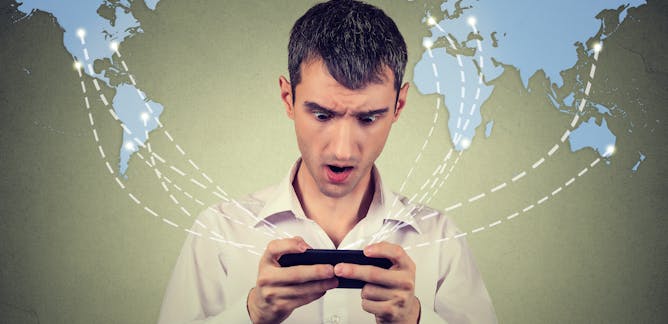
H.V. Jagadish, University of Michigan
Should police be able to use cellphone records to track suspects – and law-abiding citizens?
| |

Narseo Vallina-Rodriguez, University of California, Berkeley; Srikanth Sundaresan, Princeton University
When smartphone apps get permission to access your location or other activity, they often share that data with other companies that can compile digital profiles on users.
|

Florian Schaub, University of Michigan
Consumers can't read, understand or use information in companies' privacy policies. So they end up less informed and less protected than they'd like to be. New research shows a better way.
| |

Karuna Pande Joshi, University of Maryland, Baltimore County; Tim Finin, University of Maryland, Baltimore County
Nobody can understand the legal language in privacy policies. Can artificial intelligence digest the text and produce a human-readable explanation?
|
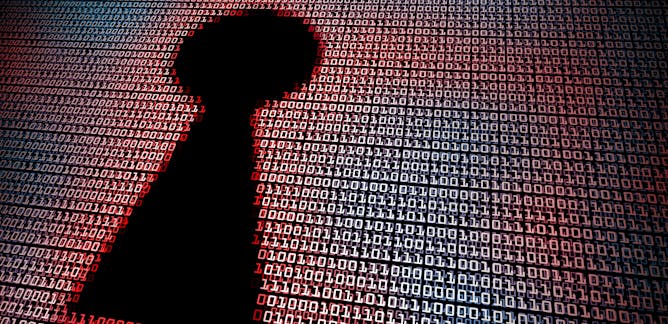
Jean Yang, Carnegie Mellon University
Most of today's computer languages make it hard for programmers to protect users' privacy and security. The fix is to take those tasks out of human hands entirely.
| |
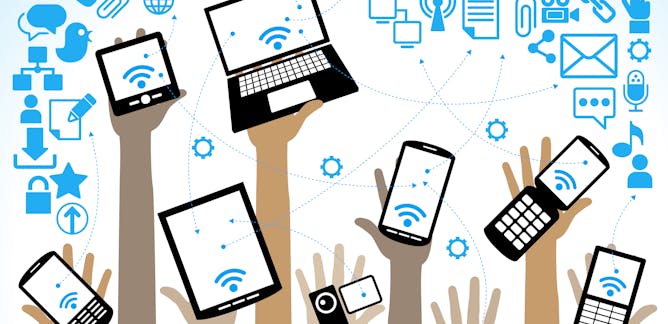
Scott Shackelford, Indiana University
Recent developments at the United Nations and the G-20 suggest that the well-known human rights to privacy and freedom of expression may soon be formally extended to online communications.
|

Susan Landau, Tufts University
The FBI and police officials say they need to decrypt secure communications to fight crime. But they have other options, and modern threats make clear the importance of strong encryption.
| |
|
|
Arts + Culture
|
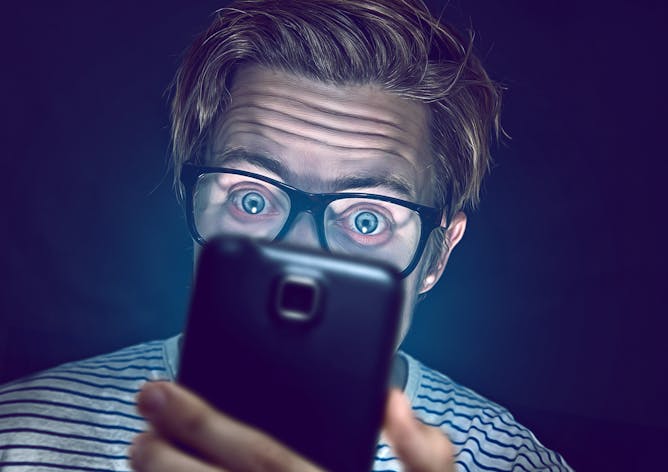
At some point, it stopped being all fun and games.
lassedesignen/Shutterstock.com
Nick Lehr, The Conversation
With studies from the past year exploring the relationship between smartphone use and mental health, sleep, learning and romance, a more nuanced portrait of the device has emerged.
|
|
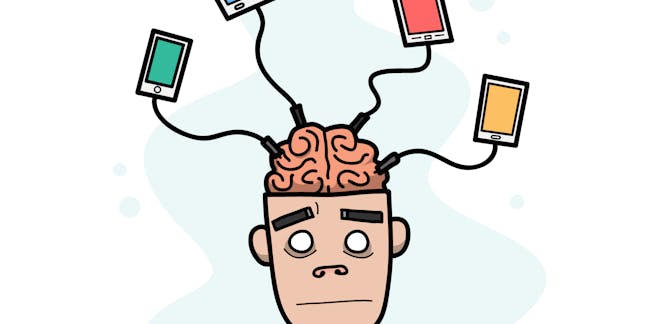
Daniel J. Kruger, University of Michigan
Have you ever checked your phone thinking you had felt it vibrate or heard it ring, only to see that no one tried to reach you? One researcher decided to study this phenomenon.
| |
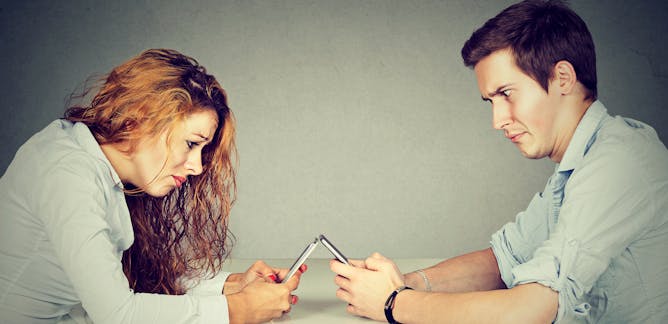
James A. Roberts, Baylor University
Phone snubbing, or 'phubbing,' has become a real relationship downer.
|

James A. Roberts, Baylor University
Are you moody? Prone to distraction? Cellphones may act as a high-tech pacifier.
| |

Jean Twenge, San Diego State University
According to a new analysis, the number of US teens who felt "useless" and "joyless" grew 33 percent between 2010 and 2015, and there was a 23 percent increase in suicide attempts.
|

Patricia A. Alexander, University of Maryland; Lauren M. Singer Trakhman, University of Maryland
Digital textbooks might be less cumbersome. But a new series of studies finds that reading from screens can hamper our ability to process and retain information.
| |
|
|
| |
| |
| |
| |
| |
| |
|
|
|
|
|
|
|
|